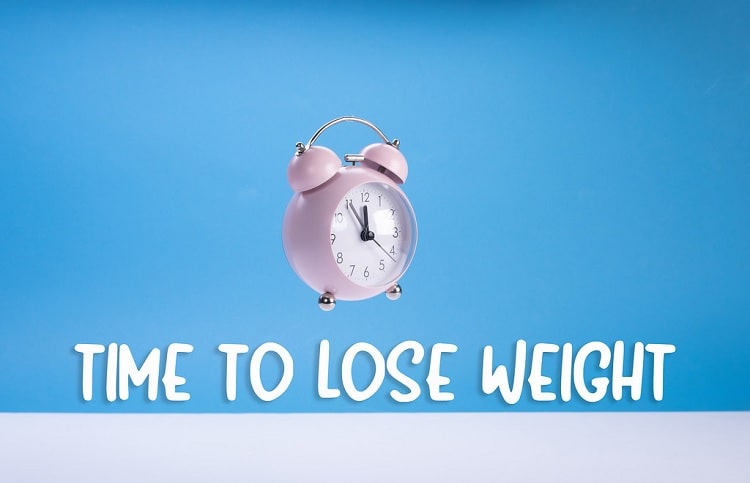Is Crystal Light Bad for Weight Loss?
It’s likely that if you’re attempting to lose some weight, you’ve encountered pieces on a diet emphasizing how important it is for dieters to sip sufficient liquids and be mindful of how many calories beverages might contain.
Several people are beginning to understand how flavor might influence how much you consume. Your odds of using Crystal Light to aid in weight loss are excellent if you employ it as a substitute for full-calorie beverages or in such a capacity as a beverage flavoring.

Overview
You may add the low-calorie flavor Crystal Light to regular water. It contains roughly 5 calories per bottle and sugar substitutes, which vary depending on the variety of Crystal Light you’re sipping. Given that Americans are accustomed to drinking beverages that are actually very sugary, its sweetness may be part of what makes it so appealing.
2 to 3 teaspoons of sugar are included in a standard 12-ounce soft drink, according to the Harvard School of Public Health. Its low caloric intake is another factor that contributes to its attractiveness. According to Jane Brody of “The NY Times,” 15% of Americans routinely drink drinks and meals with sugar substitutes.
Nutritional Value Of Ingredients
Despite the fact that Crystal Light comes in a wide range of flavors, its essential components are acesulfame potassium, calcium phosphate, citric acid, maltodextrin, and potassium citrate. Besides, certain Crystal Light types contain trace quantities of soy protein isolate, synthetic color, and organic and inorganic flavors.
Here’s a quick breakdown of all of the critical components:
- According to the International Food Additives Commission, acacia gum is a thickener and protective colloid.
- Chemical Safety Facts describe citric acid as an organic compound utilized as a food additive and a tart flavoring ingredient.
- Potassium citrate is a potassium mineral compound employed as a food additive.
- According to the USDA, potassium sorbate serves as a food additive.
- A synthetic sweetener called sucrose
- Aspartame is another artificial sweetener in it.
The U.S. FDA has approved each of the above components to be used in drinks and foods, and each is regarded as GRAS or commonly accepted as harmless.
Different nutrients are present depending on the variety of Crystal Light you’re sipping. However, in most cases, a half package of the drink includes:
- 5 kcal
- 0 g of overall fat
- 0 milligrams of cholesterol
- 35 milligrams of sodium
- 0 g of total carbohydrates
- 0 grams of dietary fiber
- 0 grams of sugar
- 0 g of protein
So, basically, it has minimal calories so drinking it won’t really hamper your regimen at all. To find out your caloric needs, check out this article.

The Healthiness Of Crystal Light
When a meal or beverage offers nutrients that enhance your welfare, it might be deemed nourishing. Although Crystal Light isn’t necessarily the healthiest beverage alternative, it might be a wiser alternative for overall well-being if you use it to substitute other high-calorie and sugar-laden beverages.
They include many artificial components and additional sweeteners, like aspartame, that may be bad for your body if you eat them in high quantities.
Additionally, the product lacks essential nutrients and doesn’t provide nutrient value.
Nevertheless, when Crystal Light is made as instructed, it has fewer calories than many other drinks. Therefore, it could be appropriate for people attempting to regulate their weight.
Furthermore, some taste enhancers like citric acid, which could have beneficial health effects, are frequently found in Crystal Light packs. To firmly establish this, additional study is necessary.

Can You Really Lose Weight While Drinking Crystal Light?
A beverage with fewer calories and sugars is called Crystal Light. Swapping out high-calorie drinks like pop, conventional sherbet, and sugary espresso may be beneficial to lessen your total calorie consumption.
Cutting calories over time can result in weight loss. Nevertheless, a person’s total nutrition will determine how much weight they lose by sipping Crystal Light.
Crystal Light can undoubtedly aid in weight loss if you use it to substitute beverages with more calories, like pop, and keep a generally healthful meal.
Crystal Light can undoubtedly aid in weight reduction if you use it to substitute beverages with more calories, like pop, and keep a generally healthy diet. In contrast, if an individual consumes a significant amount of Crystal Light without altering their meals in any other way, they could not achieve any weight loss.
To lose weight, it’s crucial to continue eating meals high in nutrients and alter other aspects of your way of life.
Is it possible to gain weight if you consume too much crystal light?
No, excessive amounts of Crystal Light won’t lead to weight gain. The low-calorie, sugar-free beverage Crystal Light is made to support individuals trying to maintain a healthy weight. Since it uses sugar substitutes instead of sugar, it has fewer calories than other sweetened beverages.
As a result, it is the perfect drink for people who want to eat fewer calories and get or stay at their target weight. Due to the drink’s low number of calories, excessive use might result in a nutritional shortage, especially in the case of some vitamins, minerals, and other crucial components for well-being.
As a result, it’s crucial to consume Crystal Light in proportion and to ensure your regimen is filled with a variety of foods that are high in nutrients.
Food concerns and health problems
Diabetes
aspartame and other substitute sugars have no impact on blood glucose levels. Aspartame, sorbitol, and stevia are among the sugar replacements that are safe for people with diabetes to use.
However, according to a study published in September 2019 in the American Journal of Clinical Nutrition, sucralose in meals has been connected to decreased glycemic tolerance. Additional study is still required to establish any negative impacts linked to artificial sweeteners.
Sucralose has few documented adverse effects. Researchers have uncovered evidence that the sweetener stevia, used in several Crystal Light items, may help people with diabetes with their cholesterol and blood glucose levels. It should be okay if consumed sparingly—no and over two cups or 16 oz per day.
Phenylketonuria
Phenylalanine, an amino, can accumulate in the human body in excess, resulting in phenylketonuria. Dishes contain phenylalanine, including seafood, chicken, poultry, and yogurt. Additionally, it is one of the components of aspartame.
Aspartame can be extremely dangerous for patients with phenylketonuria since they cannot adequately metabolize phenylalanine.
Renal Disease
Those with renal illness are thought to be able to drink Crystal Light.
It is a far wiser choice than fizzy drinks or other sugary and calorie-rich drinks. Crystal Light may be a fantastic incentive for consuming more liquid when mixed with water. It has a pleasant flavor and offers vital fluids to maintain the kidneys working more efficiently the whole day.
Diseases Associated With Dyskinesia, Insomnia, And Stress
If any of the following apply to you:
- Dyskinetic tremor
- Insomnia
- Disorders of stress or other psychological disorders
- If you use monoamine oxidase blockers or carbamazepine, including drugs like Rytary or Sinemet, which comprise levodopa.
Pregnancy
It’s crucial to stay hydrated, particularly while pregnant and nursing. Although tap water is best, you can also consume other beverages that primarily consist of water, provided they are low in sugar.
Drinks like Crystal Light would be appropriate. They are refreshing, sugar-free, and have an extremely low-calorie count.
While the evidence on the impact of substitute sugars on a fetus is still equivocal, certain studies have sparked concerns. According to an October 2018 paper in Proceedings of the Nutrition Society, some research points to the risk for premature delivery, higher newborn weight, and the possibility of kids acquiring a sugar craving.
Ketogenic Diet
Crystal lite would appear appropriate for a ketogenic diet because it has no glucose, minimal to no carbohydrates, and doesn’t elevate blood glucose levels.
In health magazine research published in November 2010, those who used sugar substitutes like aspartame and sucralose while adhering to a Mediterranean-style ketogenic diet (which includes sesame oil, seafood, and red wine) experienced reductions in BP, total cholesterol, and LDL cholesterol post twelve weeks.
Some persons who follow the ketogenic diet get migraines. If you’re following a ketogenic diet, drinking Crystal Light might not be the ideal decision as migraines could be a synthetic sweetener’s detrimental impact. You can, however, give it a go and observe your reaction.
Fasting
Some individuals depend on fizzy drinks and other beverages with artificial sweeteners to get through fasts. Because of their low-calorie content and minimal, if any, impact on blood glucose levels, these beverages nonetheless have a tasty flavor.
According to a randomized clinical trial, individuals might sometimes overindulge in alcohol to compensate for their lack of meals when fasting. According to research in Nutrition and Health in October 2015, consumption of fizzy drinks with sugar substitutes and coffee beverages didn’t rise while on alternate-day fast.
Although drinking Crystal Light during fasting appears all right, additional investigation is required to know how sugar substitutes affect fasting.
What Offers a Better Alternative to Crystal Light?
A commonly accepted cleaner alternative to Crystal Light is natural flavored water. The same revitalizing hydration advantages are offered by pure fruit-infused water, free of cream and sugar, and synthetic tastes and colors.
You may taste your water pleasantly delicious by putting your favorite fruits like cut grapefruit, limes, clementines, fresh mint, or cucumbers. This eliminates the need for sugar substitutes like crystal light. Additionally, this can offer essential micronutrients and radicals that can aid with general well-being.
There are a variety of freshly flavored bubbling and mineral waters that you may buy if you seem uncomfortable putting your fruits in your water. Water that has been purified or left unflavored is usually the safest choice.

How Many Crystal Lights Are Allowed Each Day?
It is typically advised that you only take modest doses of sugar substitutes, even though there are not many exact guidelines regarding the quantity of Crystal Light you may drink each day. Both aspartame and sucralose potassium, which are regarded as sugar substitutes, are included in Crystal Light.
The chance of significant medical issues, including cancer, central nervous system effects, or digestive abnormalities, might rise when sugar substitutes are consumed in large quantities. It is thus generally advised to take no more than 50 milligrams of sugar substitutes per kilogram of total weight each day.
To estimate however many glasses of Crystal Light they may comfortably take each day, a person must calculate their body mass and the proper computations since each 8 oz serving of Crystal Light includes 15 to 16 mg of sugar substitutes.
Conclusion
Try Crystal Light to reduce your consumption of sugar and stay refreshed. However, Crystal Light has several significant drawbacks, especially if you pick the classic form, which is crammed with additives.
Is the beverage superior to soda? Absolutely, but that still does not make this an intelligent decision. Rather, go for a healthy strategy, such as brewing enriched water or infusing lime juice into your water, to reap greater rewards.
If you are in good condition, occasionally consuming Crystal Light won’t cause significant problems. Nevertheless, there are better options than drinking Crystal Light daily. There are so many more alarming traits.
Faqs
Yes, you may drink Crystal Light on Nutrisystem without a doubt. But for maximum outcomes, we advise consuming pure or fruit-infused water.
Yes, substituting Crystal Light for fizzy drinks, smoothies, and other caloric and sugar-rich beverages may aid in weight loss as you consume fewer calories.
Some people may experience more serious adverse effects, such as vomiting, diarrhea, and stomach trouble. Numerous free reactive harm and nutritional shortages are documented as detrimental outcomes of long-term use.
No, a research study refutes the idea that Crystal Light makes individuals gain weight. These studies discovered that switching to Crystal Soda instead of beverages with added sugar might help people lose weight.






